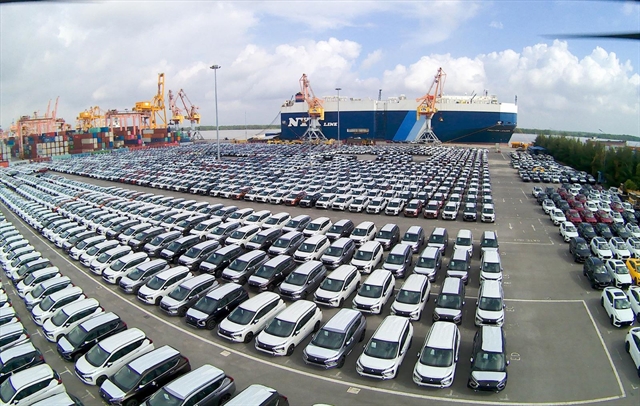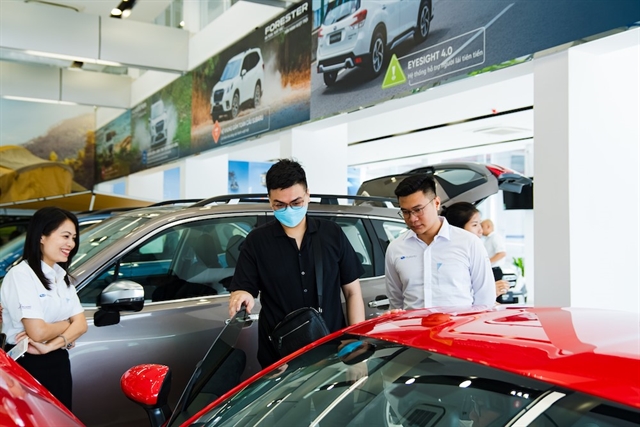 Economy
Economy

 |
| Customers check a new car in a showroom in Hà Nội. — Photo vneconomy.vn |
HÀ NỘI — In the first half of September, the influx of imported cars into Việt Nam remained robust, despite a recent Government policy to reduce registration taxes for domestically assembled vehicles, according to a report from the General Department of Customs.
The report shows that 8,267 fully completed cars were imported during this period, generating a turnover of US$170.8 million.
Notably, cars with nine seats or fewer dominated the imports, with 6,815 units accounting for $120.5 million of the total turnover. This trend highlights the significant demand for imported vehicles, which continues to exert pressure on domestic manufacturers.
From the beginning of the year to September 15, Việt Nam imported 114,855 fully completed cars totalling $2.36 billion. This marks a significant increase of 24.3 per cent (22,474 cars) compared to the same period last year, while turnover rose by 9.26 per cent.
Despite the significant increase in the number of imported cars, the growth rate for turnover was much lower, indicating a decline in the average value of these vehicles. So far this year, the average value of imported cars is around $21,000 each (excluding taxes). The primary sources of these imports are Asian countries, particularly Indonesia, Thailand and China.
By the end of August, Việt Nam imported 106,627 fully completed cars, totalling nearly $2.2 billion. This represents a 22.9 per cent increase in volume and a 7.5 per cent increase in turnover compared to the previous year. Similar to the trends seen after September 15, the growth in the number of cars significantly outpaced turnover growth, leading to a lower average value for these imports compared to last year.
Since the beginning of the year, the average value of imported cars has dropped to nearly $21,000 each, down from about $23,500 last year. Indonesia leads the supply market with 43,810 cars valued at $642.24 million, followed by Thailand with 39,101 vehicles at $756.64 million, and China with 19,649 cars totalling nearly $582 million.
Despite the announcement of a 50 per cent reduction in registration tax for domestically assembled vehicles, there has been a significant decline in their sales. In contrast, sales of imported vehicles have surged as manufacturers have implemented promotional programmes.
The rising sales of imported vehicles compared to domestically assembled ones is concerning for the Vietnamese car industry. This trend highlights a challenge for local manufacturers, especially after government support measures. It presents an opportunity for them to rethink strategies and innovate to reclaim their market position and enhance competitiveness. — VNS




